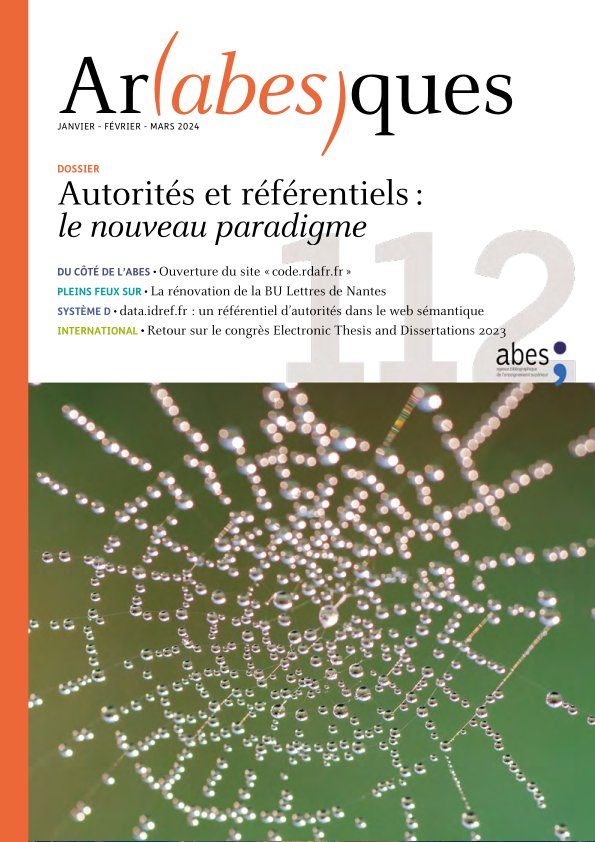Authority records and identifiers IdRef
An open and reusable database, IdRef makes available more than 6 million authority records of various types:
- nearly 4 million individuals
- more than 400,000 corporate bodies and congresses
- over 120,000 geographical locations
- over 150,000 concepts (common names) from the Rameau and F-Mesh repositories
- more than 39,000 titles
In the documentation ecosystem, authority records are used to control certain information common to several bibliographic records. They allow the described resource to be identified, described, aggregated, rebound and disambiguated.
The richness of the authority records is also expressed in the quality and completeness of the links between them and the bibliographic records, which makes it easy to establish the bibliography of an author.
Each authority record has a unique and permanent identifier IdRef, aligned with the main national and international identifiers and used by the main data repositories (HAL, ScanR...) at national level.
Increased interest in authority data
The volume and diversity of metadata in circulation within information systems implied rethinking the formalism and uses of authority data: openness, interoperability, but also data sovereignty have indeed become requirements.
The design of the IdRef public interface in 2010 was initially driven by the need to open up authority data. Sudoc correctly indexed by consumer search engines, they became visible and reusable thanks to a range of services developed for this purpose.
The scientific community's interest in baseline data
With mandatory reporting of doctoral theses, their authors and supervisors, IdRef offers excellent coverage for the reporting of active researchers. Based on the principle of crowdsourcing,Abes has set up a virtuous circle so that every researcher can inform the metadata producer of any improvements that need to be made.
Beyond these individual uses, the uses ofIdRef have developed mainly in the field of Digital Humanities. Thus, in the framework of calls for projects launched by the GIS Collex-Persée or theNational Research AgencyAbes works directly with specific scientific communities (historians, archaeologists, specialists in languages with Arabic script, jurists, naturalists, etc.). In this logic,Abes signed a cooperation agreement in 2019 with the LARHRA (Rhône-Alpes historical research laboratory) for the deployment of data in accordance with the FAIR principles: "findable, accessible, interoperable and reusable".
Please note: whether it's a question of implementing the evolution of the UNIMARC format, applying the reform of the Rameau with BnF, operations involving the production of authority data are fully part of the Bibliographic Transition program .
Open Science: the identifiers IdRef, ISNI, ORCID ... .
Within a complex international and national landscape, of which a state of the art has been drawn up for the Committee on Open Science (CoSo ) in 2019, IdRef is positioned as a pivotal identifier to serve the needs of Higher Education and Research at the national level, particularly with regard to the description of people. To this end,Abes promotes the use ofIdRef, a repository built over the years by thousands of cataloguers, administered on a daily basis byAbes, at the centre of many quality initiatives, and over which the sovereignty ofAbes and its networks is total.
However,Abes is not unaware of the need for alignments to international identifiers: thus, its authority data is exposed in VIAF(Virtual International Authority File), which reconciles it with the authority data of national libraries or library networks.
The identifiers IdRef are also aligned with theISNI(International Standard Name Identifier), an ISO standard for identifying the various contributors to creative works.
For several years, theORCID(Open Researcher and Contributor ID)identifier has been the benchmark for enhancing the value of the researcher corpus. Since the end of 2019, in conjunction with the COUPERIN consortium,Abes has been co-piloting the ORCID France consortium, bringing together French establishments wishing to join ORCID's paying services.
